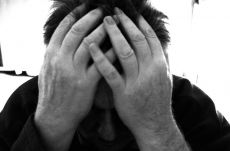
Bipolar Disorder
X-Men: Days of Future Past Explores Bipolar Disorder
The latest X-Men movie explores depression and finds hope in it.
Posted May 30, 2014
I have long argued that the X-Men movies are a great metaphor for bipolar disorder. When X-Men: The Last Stand came out I wrote an article about how the X-Men’s struggle to control their “super powers” are analogous to our struggles with mania and depression. When the newest movie came out I was hoping to see further evidence in support of my ideas and was not disappointed.

There are so many parallels between X-Men: Days of Future Past and bipolar conditions that I could write several articles about them, but I want to just briefly mention a few and then focus in on the one that I find the most meaning in. The movie mentions meds, genetics, and mental difficulties, but the parallels to my own views on depression is uncanny.
Meds
Medication plays a central role in the movie. Hank uses a special formula to control his tendency to turn into “the beast.” Based on that formula, Hank creates a different version for the young Charles Xavier to use to control his condition. Young Charles takes too much and loses his ability to function at all. The parallel to common experience with psych meds is pretty obvious.
Later in the movie, young Charles tells Eric that the meds help him to walk. Eric mocks him for trading his power for the ability to walk and young Charles responds that he takes meds because it helps him sleep. The way he says it indicates that without the meds his life is unbearable.
Genetics
The whole premise of the X-Men is that they are genetic mutants. Their “super powers” are a result of mutated genes that bring out the powers. X-Men: The Last Stand was about creating a cure and returning people to normal, which is pretty much what they have been trying to do for people with bipolar disorder for the last 50 years.
Young Charles says his meds change his DNA, which both removes his power and gives him the ability to walk.
Dr. Trask reads a statement from an X-Man who says they are the next evolution of mankind and compares Homo Sapiens (us) to Neanderthals. The implication is that Neanderthals were wiped out and the X-Men will do the same to Homo Sapiens. Dr. Trask concludes that we must wipe out the X-Men before it is too late.
Although they have yet to find the gene for bipolar, current science has found a clear indication that it runs in families. I fear, like the X-Men do, that if they find the gene, they will then use that knowledge to remove our genetic variation from the gene pool and wipe us out because they fear us.
Depression
Depression is the big one for me. Young Charles seems depressed through much of the movie, but it really comes out in the scene where he meets his older self. The scene is so great that I rate it right up there with my favorite scene in the movie The Hours.
In the scene, Young Charles is about the take his meds to remove the voices when Wolverine talks him out of it so they can use the powers to save the world. He enters Cerebro (the machine that magnifies his powers) but he goes too far and blows the circuits. Wolverine says “It is not the machinery, is it?” and young Charles answers “I can’t do this, my mind…”
Wolverine tells young Charles to find his older self through Wolverine’s mind and he meets his older self that way. He tells old Charles that the future is hopeless and old Charles says “not if we show them a better path… Just because someone stumbles - loses their way, it doesn’t mean they are lost forever.” He indicates that young Charles should go back and help, but Young Charles replies “I’m not the man I was. I open my mind and it almost overwhelms me.” Old Charles says “You’re afraid and Cerebro knows it.” The implication is the real problem is young Charles’ fear of losing control of his mind through the experience.
I find these scenes and the dialog incredibly reminiscent to how I felt when I did not understand the depression (and mania). I was overwhelmed and needed to close my mind to the experience of it. Like young Charles, I needed medication to remove it from me and was afraid that it was too much for me to handle. I think all of us who have been overwhelmed by our thoughts can relate to that feeling.
Continuing the scene, young Charles says “all those voices - so much pain” and old Charles gives the message I have tried to say for a long time; “It’s not their pain you are afraid of. It’s yours Charles. And as frightening as it may be, their pain will make you stronger. If you allow yourself to feel it. Embrace it. It will make you more powerful that you ever imagined. It’s the greatest gift we have - to bear their pain without breaking. It’s born from the most human power - Hope. Please Charles, we need you to hope again.”
I was blown away by the whole scene, but especially the final statement. I had written earlier about how I found ecstasy in depression and I see the statement as very similar to what I talked about there. Although I still see Saint Teresa’s statement that “The pain is still there. It bothers me so little now that I feel my soul is served by it” to be much more direct, I think the scene really nailed it in a more accessible way.
The Bipolar Advantage comes when we embrace who we are and develop the understanding it takes to use the power instead of being overwhelmed by it. Charles Xavier’s role in the whole X-Men series is to help the mutants learn to control their powers and use them for good. That is what I help people to accomplish with bipolar. I really hope you will see the movie and let me know what you think.
..........
Follow Tom on Twitter: https://twitter.com/TomWootton
Subscribe on Facebook: https://www.facebook.com/bipolaradvantage
Watch Tom on YouTube: http://www.youtube.com/BipolarAdvantage
© 2014 Bipolar Advantage



